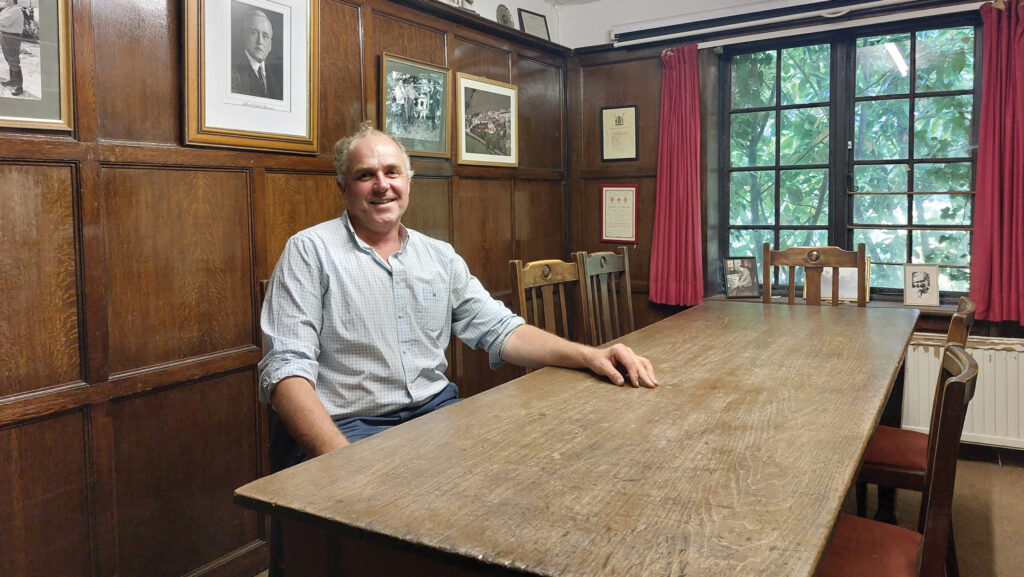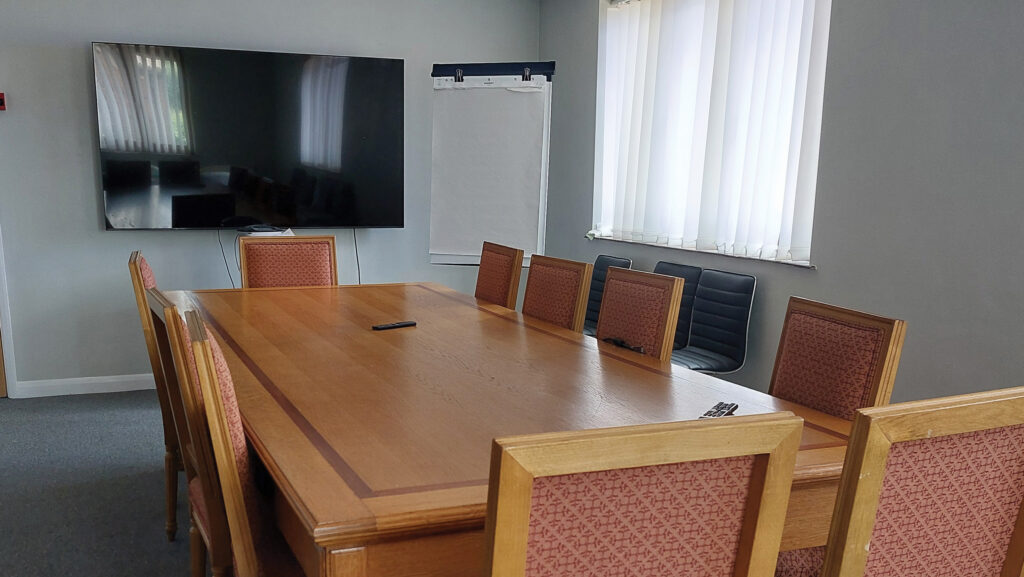How to get good communication on a family farm business
 Charles Harrison in the original panelled boardroom © MAG/Shirley Macmillan
Charles Harrison in the original panelled boardroom © MAG/Shirley Macmillan Using a formal boardroom setting has proven a successful way to communicate effectively across multiple enterprises in one growing family farming business.
Every Monday at 5pm (unless they are silaging), the shareholders of R Harrison & Sons, near Horsham, West Sussex, meet in their farm office at Pallinghurst Farm.
They are carrying on a tradition started by four brothers: the late Jim and Dick Harrison, and their surviving brothers, Peter and Jonathan.
See also: How to prioritise everyday livestock tasks and be more productive
The next generation (Charles, Neil, Tim, Mark and David) believes that operating a large family business, profitably, revolves around good communication.
Farm facts
R Harrison & Sons, Horsham, West Sussex
- 512ha grassland
- 138ha maize
- Three autumn block-calving herds comprising 1,250 cows
- Farm workshop and fabrication business
- Former brickworks converted into 17 business lets, including The Milk Churn café
- Sussex Charmer Cheese produced on licence with the Bookham family
- Two youngstock rearing units, including three to four business lets
- The Milk Churn Meeting Room
Charles says the Harrisons have run board meetings for as long as he can remember.
“We have grown up with this. We discuss what happened in the previous week, what’s going on this week, and everyone reports on action points. We talk for one to two-and-a-half hours,” he says.
Chairing communication
He agrees it is a discipline to run a family meeting and stick to it: “We are an anomaly as we have cousins working together. In a smaller business, you see everyone daily. We just tend to see each other in passing,” he explains.
Peter still chairs the meetings, keeping everyone on track and taking notes for future reference.
Charles thinks this more formal method helps with open and honest communication and that having a chairman is important.
“The chairman says who is to talk next, and we stick to the routine of it.
“We can discuss staff issues, the dairies, then the cheese, our brickworks site, youngstock, building works, silaging, or seasonal jobs and services. Then we have ‘any other business’.
“It is important for us to keep everyone abreast of what’s going on.
“Also, if anyone is unhappy about anything, they can air it – not let it fester. We are a pretty laid-back family, so there is no arguing. Our ethos is equality: it’s always been there.”
Old boardroom
Weekly meetings have been held in a room that was fitted out with old wooden panelling rescued from a London boardroom in the 1970s, a table seating 10 and a pull-down screen at one end, says Charles.
Using a more formal setting also helps with communication and keeps things on a neutral footing (than, say, chatting around the kitchen table), he thinks.
Today, the shareholders tend to meet in the farm’s larger office, but once a quarter they hold a board meeting chaired by their business consultant, Tony Evans of Andersons.

Purpose-built conference facilities for the family’s quarterly board meeting © MAG/Shirley Macmillan
The venue for this is a purpose-built conference room (available for hire) in their own farm café, The Milk Churn.
“This meeting has an agenda and runs from 10am to 4pm. We go through all businesses, our figures, cashflow and budgets.
“We have more space and facilities in the new conference room. Tony is good at explaining business figures for everyone, takes notes and emails a follow-up report,” says Charles.
